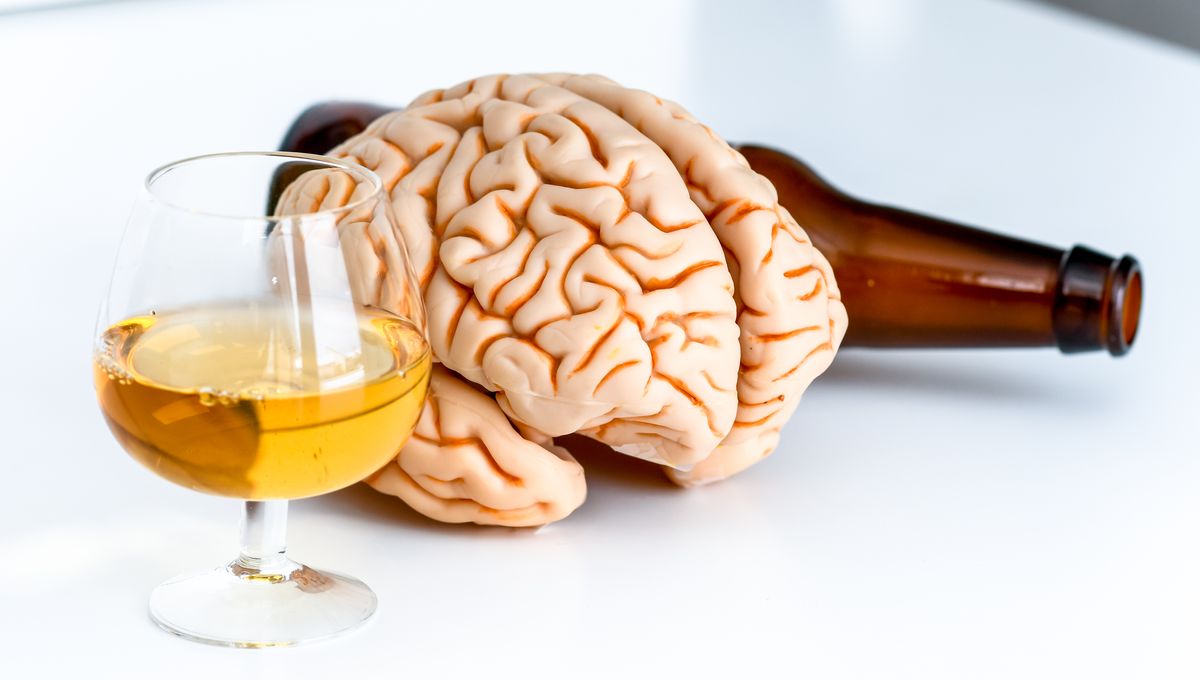
In a new study, people with alcohol use disorder (AUD) have been observed to regain thickness in their cortex, the outermost layer of brain tissue that can become thinner in people with AUD, over an extended period of attempted abstinence from alcohol. The study participants, who had experienced AUD for years, had cortical thickness statistically equivalent to control participants in 24 out of 34 regions of interest in the brain after 7.3 months.
“There is very limited information in the alcohol use disorder field regarding how human brain structure recovers over longer-term abstinence after treatment,” study author Timothy C. Durazzo told Psypost. “Our study is the first to demonstrate significant recovery of cortical thickness in multiple regions in those seeking treatment for alcohol use disorder over approximately 6-7 months of abstinence after treatment.”
Over a period of alcohol abstinence, 88 people with AUD underwent magnetic resonance imaging (MRI) scans one week, one month, and 7.3 months in. Of these, 23 joined the study after 4-5 weeks of abstinence. Two participants relapsed between the first and second intervals, and 43 relapsed after the second interval. Their results were compared to those of 45 control subjects who did not smoke or have AUD.
In 19 of these, the rate of change was faster between one week and one month in compared to the period between one month and 7.3 months in. Several of these regions are “cortical nodes in functional circuits involved in salience appraisal, executive functions, mood/affect processing and regulation, self-monitoring, behavioral control and default mode,” the authors write. “The more rapid thickness recovery in these critical functional regions during early abstinence may relate to improved integrity of functions/abilities necessary to maintain extended sobriety.”
However, as Durazzo told Psypost, “The relationship between the improvements in cortical thickness, psychiatric conditions and symptoms and cognitive function and quality of life measures need to be examined.”
Male participants in the study all consumed more than 150 alcoholic drinks a month for at least eight years, and female participants consumed more than 80 drinks a month for at least six years. The researchers observed that those who had greater alcohol consumption in the year before the study had decreased thickness recovery in certain ROIs.
In those who actively smoked, increased pack years (a pack year being the equivalent of smoking 20 cigarettes a day for a year) was associated with decreased thickness recovery in 11 areas. However, in those that weren’t active smokers, “Cigarette smoking history, psychiatric, and substance misuse comorbidities were not significant predictors of regional thickness changes,” the authors explain. This drives home the importance of helping those seeking treatment for AUD to also quit smoking.
“Those with conditions that promote atherosclerosis,” such as type 2 diabetes, hyperlipidemia, hepatitis c, and hypertension, “plaque buildup in the arterial system (such as high blood pressure, high blood lipids, diabetes, and cigarette smoking) did not show as much improvement in several cortical regions as the group without atherosclerotic promoting conditions,” Durazzo explained to Psypost. “Therefore, it is extremely important to effectively treat and manage such conditions.”
The study is published in the journal Alcohol.
Source Link: This Is How Long It Takes The Brain To Recover Following Alcohol Use Disorder Cessation